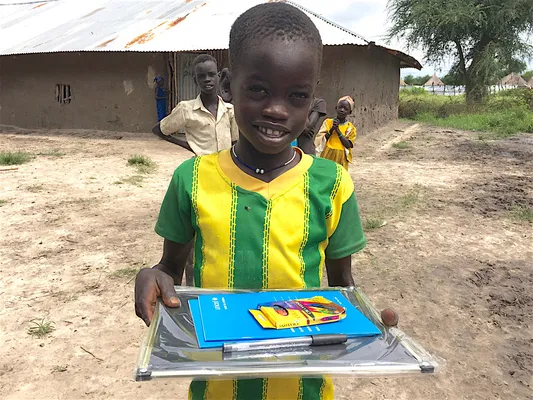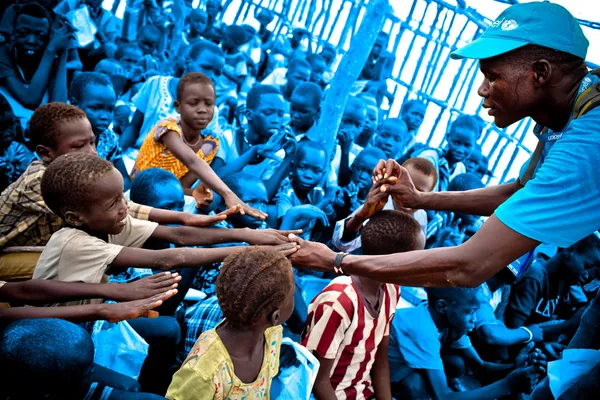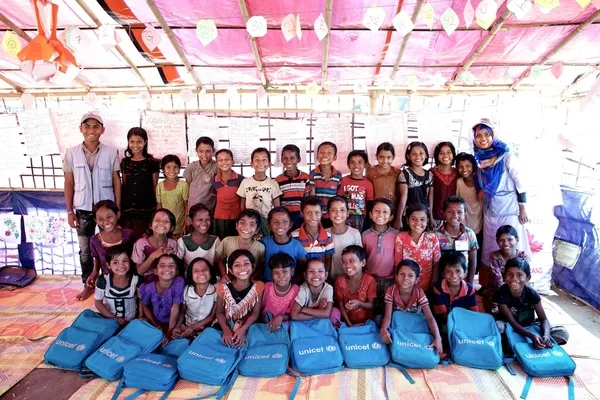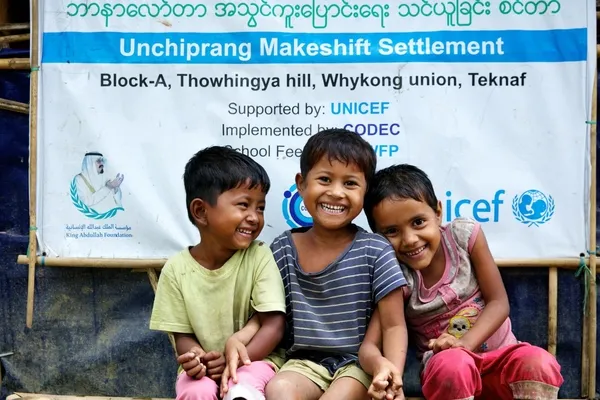In our line of work, it can often seem like no matter what we do, the world just keeps on spinning out of control.
Children suffer. Children starve. Children are out of school.
At UNICEF, we try our best to protect them. To feed them. To get them back in school.
We make a lot of noise, and sometimes the world hears us, sometimes it doesn’t. But we carry on anyway. We have no other choice because the cries and pleas of children are too deafening to our ears.
The ripple effect of UNICEF’s work is massive. From one girl to an entire family. From one family to a community. From one school to an education system. From one system to another. From one country to the next.





